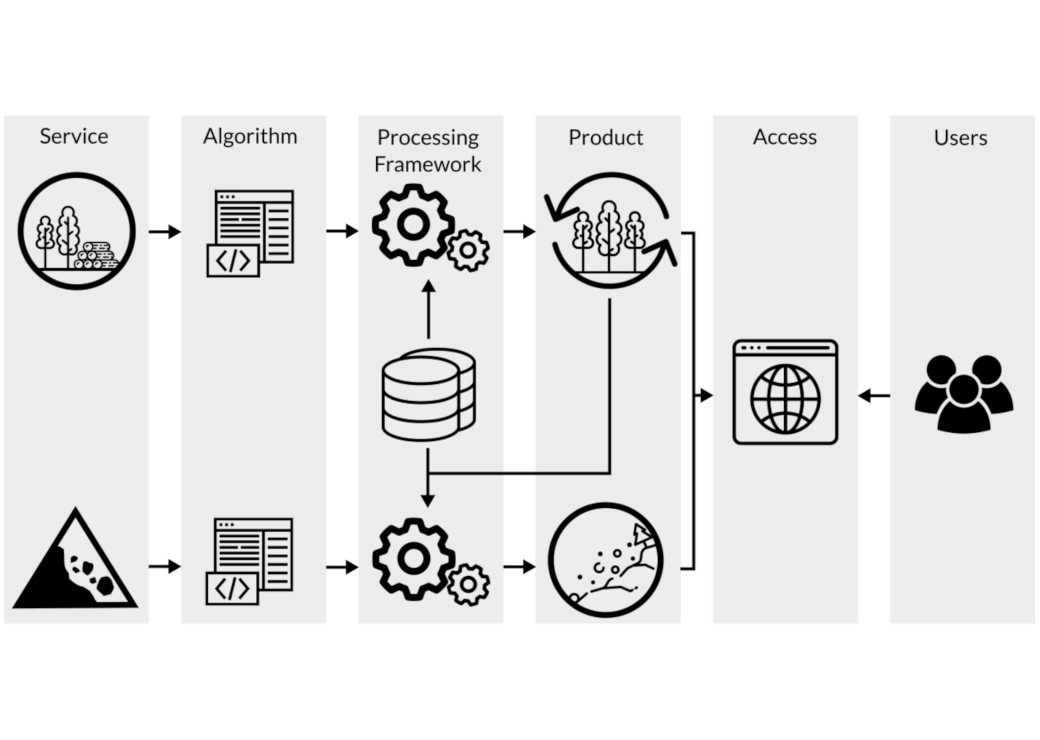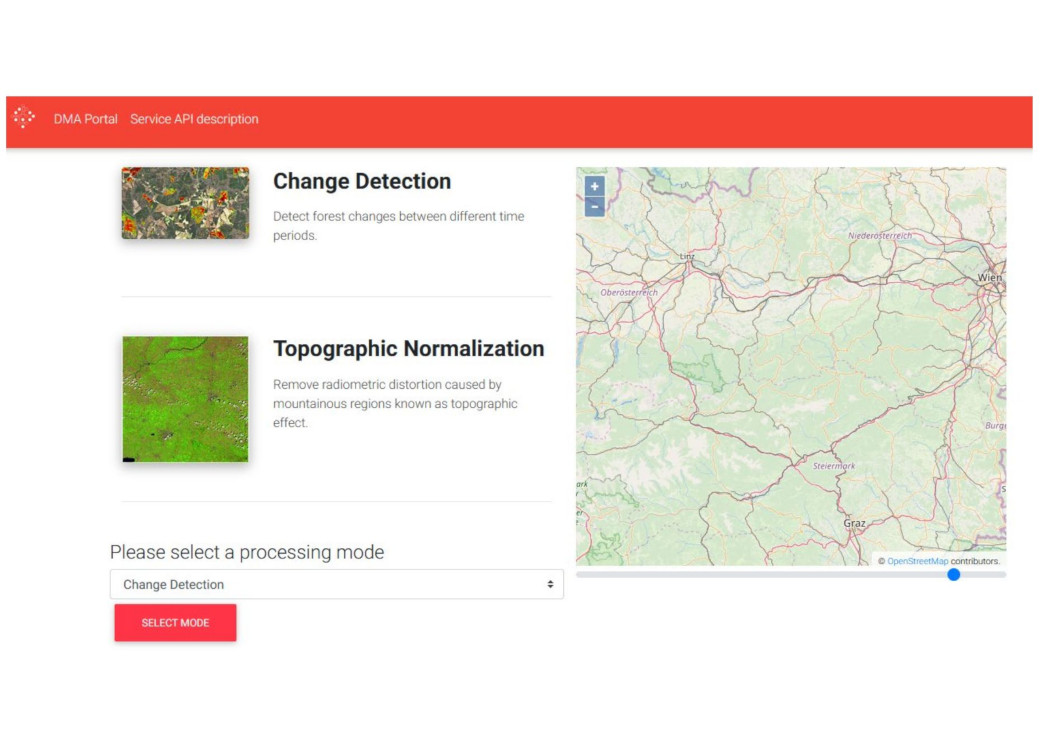DMA: Data Market Austria
Short Description
This data trade can be used to develop new types of innovations and create a vibrant data ecosystem. Companies and organisations benefit from this data trade on the one hand through the commercial usability of their data, but on the other hand also through the possibility of expanding their own database with the help of new, external data. This helps to implement innovative utilisations.
The innovative aspect of the DMA lies in the creation of a data infrastructure that enables trustworthy and traceable data trading. One special aspect was data security, which is often expressed as a concern about data trading. There was also a focus here on interoperability, which addresses the problem of data heterogeneity and the multiplicity of interfaces between different organisations.
The four main innovations were in the areas of
- providing an innovative technological basis for data maintenance, data origin and data security (e.g. with the help of distributed ledger technology) and matchmaking between data and services
- establishing an innovative environment for the creation of a data community
- connecting cloud systems
- implementation of the two pilots "Earth observation" and "Mobility".
Operational challenges consisted of motivating organisations to trade data. Concerns about utility and data security proved to be hurdles that needed to be overcome. The concept of "data circles" was developed as a response to this, in which organisations trade data with one common goal. There were some technical challenges in the areas of data origin, data maintenance and security, which were addressed using appropriate methods, such as the use of distributed ledger technology.
The project was completed in September 2019. The results of the project can be viewed on the project website.
Contribution to the SDGs
The wide availability of data enables innovators to implement projects that ultimately support a broad range or even all of the 17 SDGs. Specifically however, the DMA contributes to SDG 9 "Industry, Innovation, and Infrastructure" by providing a data infrastructure that can be used to support Austria's capacities for innovation. This is not just limited to industry, however, and can have a wide range of applications.
The two pilots "Earth observation" and "Mobility" were also implemented in DMA. The "Earth observation" pilot contributes to SDG 13 "Climate Action" and SDG 15 "Life on Land", while the "Mobility" pilot contributes to SDG 11 "Sustainable Cities and Communities" with its "taxi fleet management" aspect.
The "smart" aspect was fulfilled in DMA through its goal of creating an infrastructure for data trading. Organisations often face the problem that they simply lack the data required to implement new and smart innovations. A vibrant data market can help here. Organisations gain access to data that they would otherwise not have had and are able make use of these data, e.g. through innovative digital applications. Conversely, the providers of the data themselves benefit from the sale of their data, which would otherwise have remained unused.
The DMA project is a forward-looking one because it advances the current efforts to create data ecosystems by providing the corresponding infrastructure. The aim was to support national efforts such as data hubs by providing a technical infrastructure. The DMA project also contributes to the European GAIA-X project, which aims to create a pan-European data ecosystem.
Publications
Brochure: Digital Technologies (2024)

Ready for the Future: Smart, Green and Visionary. Project Highlights of the Years 2016 to 2021.
FFG: Olaf Hartmann, Anita Hipfinger, Peter Kerschl
Publisher: Federal Ministry for Climate Action, Environment, Energy, Mobility, Innovation, and Technology
English, 72 Seiten
Publication Downloads
Project Partners
Consortium leader
- AIT Austrian Institute of Technology GmbH
- Cloudflight Austria GmbH (previously Catalysts GmbH)
- Compass-Verlag GmbH
- University for Continuing Education Krems
- EODC Earth Observation Data Centre for Water Resources Monitoring GmbH
- INiTS Universitäres Gründerservice Wien GmbH
- JOANNEUM RESEARCH Forschungsgesellschaft mbH
- Know-Center GmbH
- Semantic Web Company GmbH
- Siemens AG Austria, T-Mobile Austria GmbH
- T-Systems Austria GmbH
- TDA Trusted Data Analytics GmbH & Co KG
- Wikimedia Austria
- Central Institute for Meteorology and Geodynamics


